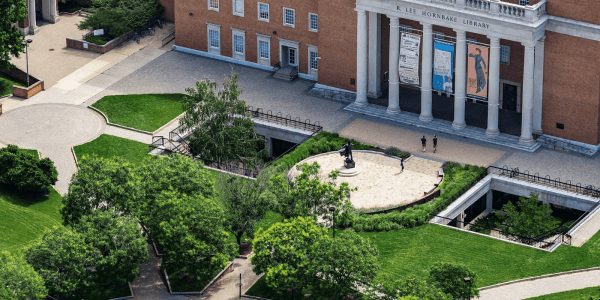Measuring Forest Carbon Storage to Promote Climate Action
With over 5,000 acres of land across the state of Maryland, the University of Maryland College Park’s campuses are abundant in natural spaces and forested areas. The main campus in College Park is an internationally accredited arboretum with over 15,000 trees, more than 60 acres of protected forest easement, and an Audubon Certified Sanctuary Golf Course. Satellite campuses around the state include over 2,500 acres of farmland, agricultural research stations, fire safety and training facilities, and a bioscience research complex.
These green spaces provide important benefits to mental and physical health, education, and campus operations. They provide enormous environmental benefits ranging from storm protection to energy conservation, from wildlife sanctuaries to carbon storage. As part of the University’s 2015 Climate Action Plan, the university committed to studying these natural landscapes to better understand the carbon sequestered and stored by forests on campus.
Article written by Emily Hightower
Published on Mon, 10/10/2022 - 14:55


